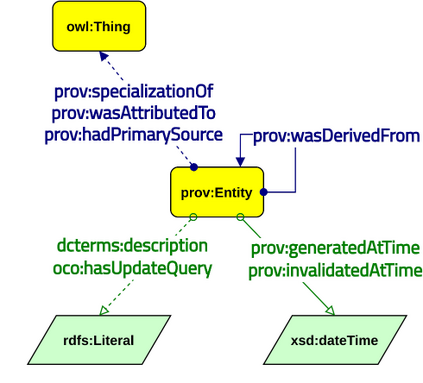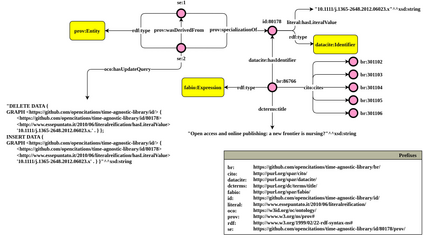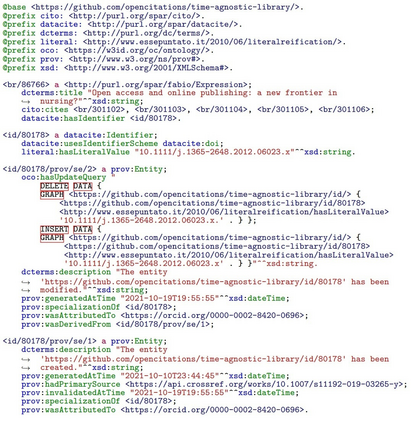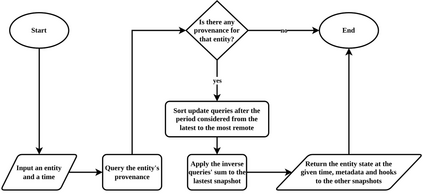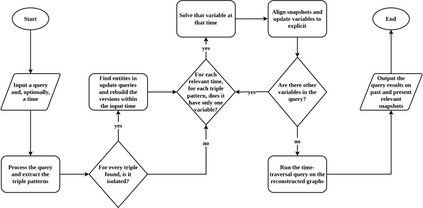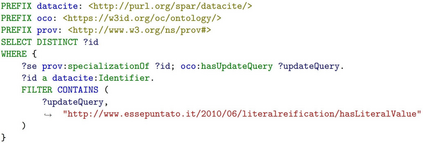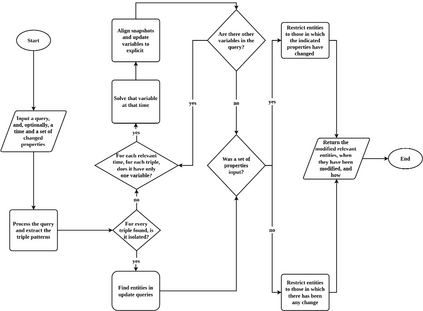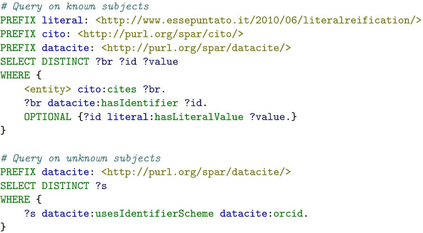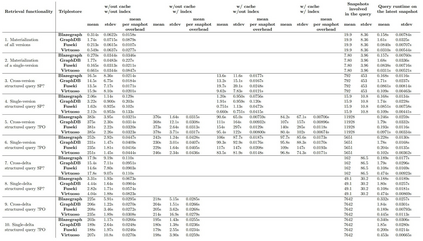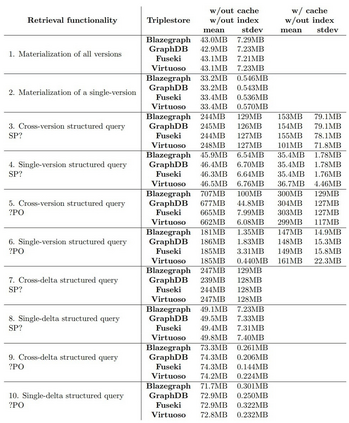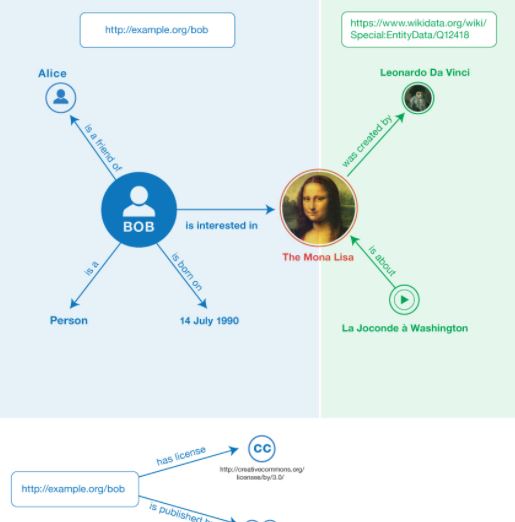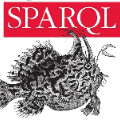This article introduces a methodology to perform live time-traversal SPARQL queries on RDF datasets and software based on this methodology that offers a solution to manage the provenance and change-tracking of entities described using RDF. These are crucial factors in ensuring verifiability and trust. Nevertheless, some of the most prominent knowledge bases - including DBpedia, Wikidata, Yago, and the Dynamic Linked Data Observatory - do not support time-agnostic queries, i.e., queries across different snapshots together with provenance information. The OpenCitations Data Model (OCDM) describes one possible way to track provenance and entities' changes in RDF datasets, and it allows restoring an entity to a specific status in time (i.e., a snapshot) by applying SPARQL update queries. The methodology and library presented in this article are based on the rationale introduced in the OCDM. We also developed benchmarks proving that such a procedure is efficient for specific queries and less efficient for others. To the best of our knowledge, our library is the only one to support all the time-related retrieval functionalities live, i.e., enabling real-time searches and updates. Moreover, since OCDM complies with standard RDF, queries are expressed via standard SPARQL.
翻译:本文介绍了一种方法,用以根据这一方法对RDF数据集和软件进行实时实时时间跨 SPARQL 查询,这种方法为管理使用RDF 的实体的出处和变更跟踪提供了一种解决办法,这些是确保可核查性和信任的关键因素,然而,一些最突出的知识基础,包括DBpedia、Wikigata、Yago和动态链接数据观测站,并不支持时间识别查询,即对不同照片的查询和出处信息进行查询。开放数据模型(OCDM)描述了一种可能的办法来跟踪RDF数据集的出处和实体的变化,它通过应用STARQL更新查询,使一个实体恢复到一个特定的地位(即快照),但本篇文章中介绍的方法和图书馆所依据的是OCDMR提出的理由。我们还制定了一些基准,证明这种程序对具体查询和来源信息的效率较低。根据我们的知识,我们的图书馆是唯一一个用来支持与时间相关的检索功能的渠道,自SDAR标准更新以来,能够通过SDR标准进行真正的搜索和检索。


